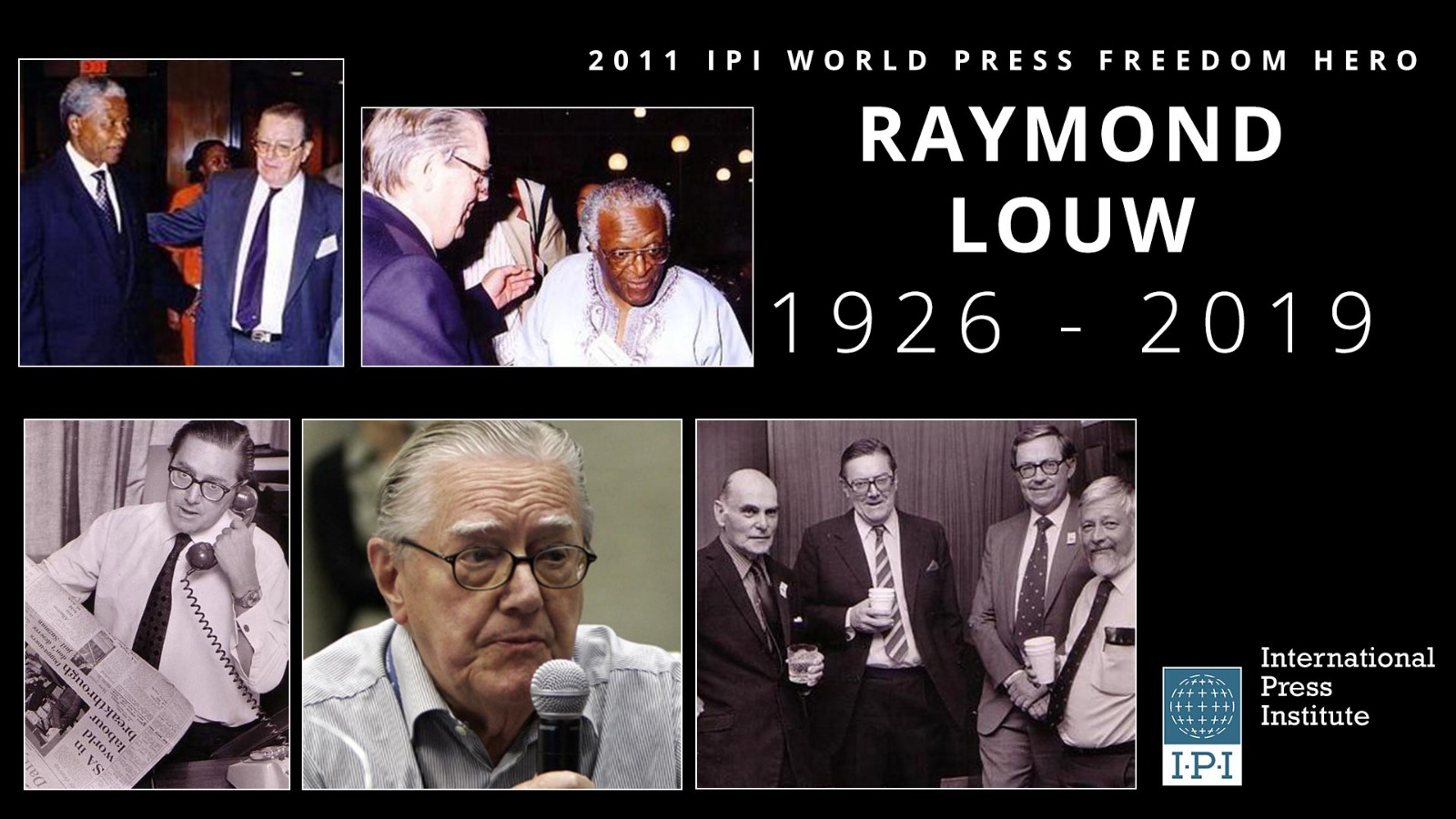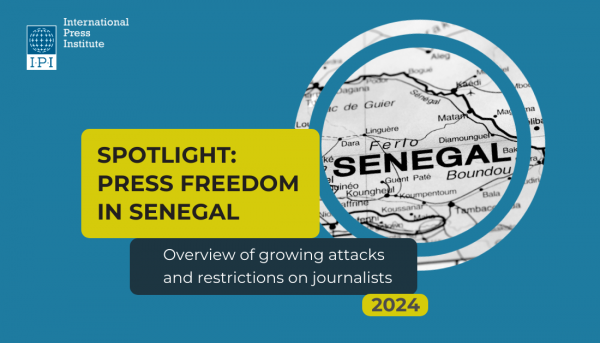The International Press Institute (IPI), the global network of editors, media executives and leading journalists for press freedom, mourns the death of Raymond Louw, one of South Africa’s most respected journalists and a vocal media freedom champion. Louw passed away yesterday, June 5, just one day after the death of this wife, Jean. He was 92.
A long-time, active member of IPI and a former IPI Executive Board member, Louw was named an IPI World Press Freedom Hero in 2011 for his “commitment to press freedom and his outspoken defence of journalists’ rights”.
Louw was the editor of the Rand Daily Mail (1966 to 1977) and general manager of South Africa Associated Newspapers (1977 to 1988). He was editor and publisher of the weekly current affairs newsletter Southern Africa Report for 28 years until March 2011. Louw was also vice-president of South African PEN, chairman of the South Africa Chapter of the Media Institute of Southern Africa (Misa), deputy chairman of the Media Freedom Committee of the South Africa National Editors Forum, and an executive committee member and former chairman of the Freedom of Expression Institute.
Displaying courage in the face of apartheid repression, Louw was instrumental in establishing the Media Defence Trust, set up under the apartheid regime to defend journalists against state censorship and detention.
Most recently, he was outspoken about politicians who seek to intimidate journalists and a host of laws in democratic South Africa that affect media freedoms. He used his voice to advocate for press freedom across the world, joining several IPI missions. Louw’s intercession on behalf of IPI in 1996 for the late Le Messager editor Pius Njawe, then imprisoned in Cameroon, led to a presidential pardon for Njawe six months later.
Louw received several awards for promoting and defending press freedom and was awarded an honorary doctorate of literature from Rhodes University, South Africa, in 2012.
Louw’s passion and perseverance in pursuit of press freedom, and his dedication to the mission of IPI, will be deeply missed.
IPI members on Raymond Louw:
Wherever we were in the world it was always a joy to see or hear Raymond Louw. Calmly, and consistently over decades, he was a presence – a pen, a voice, a megaphone – for press freedom we all grew to respect and honor. Through the cruel years of apartheid and the torments of an emerging democracy, he was invariably lending his immeasurable authority to protecting the principle of a free press. He was judicious and he was brave. He was as alert to the coercions against an individual reporter as identifying the convolutions of a sub clause in legislation that threatened to limit the good that journalists may do in the public interest.
– IPI World Press Freedom Hero and former IPI Executive Board member Sir Harold Evans (former editor, The Sunday Times, UK)
Ray’s battles and victories for press freedom – all testaments of his courage and unwavering principles – are too many to list. But it was at the Congresses that I saw him at work most closely: For decades, he was the master of IPI’s resolutions, the membership’s published denunciations of specific press freedom violations. He must have drafted and refined hundreds, the results eloquently reflecting the values that our organization stands for.
– Former IPI Vice Chair Simon Li (former assistant managing editor, Los Angeles Times, USA)
Raymond Louw is one of the great names in the history of the International Press Institute. He was always a loyal member of IPI and a journalist of principle. Ray never compromised on the issue of press freedom. We remember him also for his fight against the apartheid system. In his last speech to the IPI World Congress in Cape Town in 2014, he expressed sharply his dissatisfaction with the developments in South Africa after Nelson Mandela. IPI can be proud to have had such a person as its active member. We’ll miss you, Raymond.
– Former IPI Chair Janne Virkkunen (former senior editor-in-chief, Helsingin Sanomat, Finland)
It’s hard to be surprised (said he at 91) that someone goes on at 92, but it’s no less sad to lose someone for whom I had such great affection and respect. Sitting for years with him on the Resolutions Committee was always a pleasure. When matters were complicated, as they so often were, it was comfort to have him alongside. He always seemed to know so much about the issues, but more than that, an intelligent and rational way for us to deal with them. IPI will always need people like Ray.
– Patrick (Paddy) Sherman (former president, Southam Newspaper Group, Canada)



